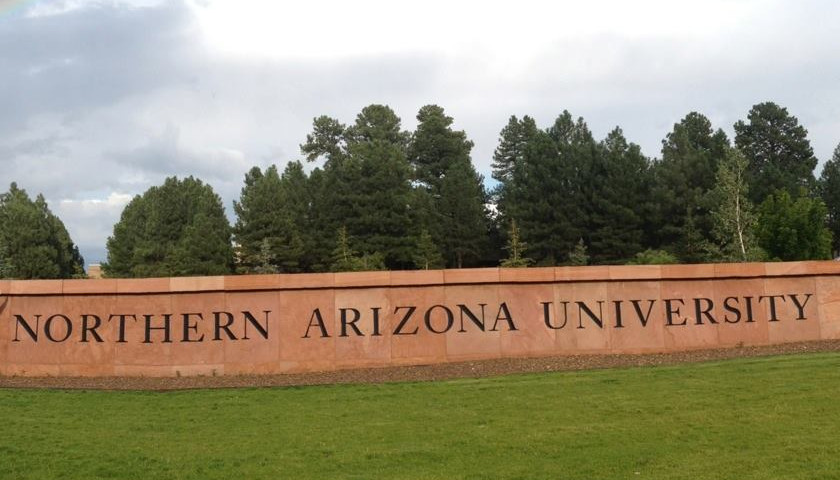While Arizona’s three public universities are demanding tuition increases, at the same time one is also announcing that it will provide free tuition to about half of Arizona households. Northern Arizona University (NAU) said its new financial aid initiative, Access2Excellence, will cover tuition expenses for every Arizona resident who is admitted to the university and has a household income of $65,000 or less. The median family income in Arizona is $65,000.
Two Arizona legislators told The Arizona Sun Times they disagreed with the move. State Sen. John Fillmore (R-Apache Junction), said his bill to encourage apprenticeships is a better solution. “The fact is more kids should NOT be pushed to go to college, and when they are, many are lost after a year or two from disinterest, life issues, and lack of ability,” he said. “This will become another nail in the coffin of helping kids in spite of the desires of wokism. The bill (now in the Senate, and appears it will pass with overwhelming bi-partisan support and has the blessing of the Governor) HB 2290 which has passed the House is opening up apprenticeship programs in high school, and even further depletes the kids from attending college. I know our State Constitution says we should offer a college as close to free but I do not believe the meaning is at the detriment of all.”
State Sen. Nancy Barto (R-Phoenix) agreed with Gray and added, “The problem with ‘free’ tuition for some is that it always raises the cost of tuition for others, including taxpayers footing the bill. Why should we expect a different result from this iteration on the theme this time? We should address rising tuition costs by enabling more competition and that should entail taking the federal government’s thumb off the student loan scale.”
Part of the reason for the drastic step is declining enrollment. Between fall 2017 and fall 2021, undergraduate enrollment declined 11%. Lyndel Manson, chair of the Arizona Board of Regents, declared, “The Access2Excellence initiative underscores NAU’s commitment to eliminate obstacles that undermine the college-going aspirations of students from diverse economic, social and cultural backgrounds.”
Many prominent Democrats have called for free tuition, including Hillary Clinton, who supports it for families making under $125,000 a year.
However, countries that offer free college tuition have some of the highest tax rates in the world. Germany, which has one of the most generous tuition compensation plans, available to all students regardless of income level or what country they are from, has the second-highest tax wedge in the world. About 49.4% of the average German worker’s paycheck is taken in income taxes and other payroll taxes. In contrast, the tax wedge in the U.S. is about 31.7%. Most countries in the European Union have free tuition, and they also have sales tax rates of around 20%, whereas America has sales tax rates under 10%.
After Germany implemented free tuition a few years ago, many Germans regretted it. A significant 44% now want to reimpose tuition. The shift to dependence on government funding there has resulted in a 10% decrease in spending per pupil. The Hechinger Report, an education watchdog, found, “Starved for funding, German universities are seldom near the top of international rankings,” and undergraduates are stuck in classes with hundreds of students, taught by graduate students.
A study conducted after Scotland’s higher ed stopped charging tuition found that the move hurt low-income students already receiving free tuition because the money that would have gone to help them with other costs like rent and food was cut and diverted to the higher-income students who could afford to pay. More than $25 million was transferred this way.
Ludger Woessmann, a professor of economics at the University of Munich and director of the Center for the Economics of Education, said making tuition-free in Germany did not increase the likelihood of poorer or more diverse students choosing to attend college. He said it depends on whether their parents did. A study in Norway found the same result.
Several universities around the country have moved to free tuition for students from middle-class incomes or lower. Louisiana started offering free college to all students regardless of income in 1998. While it stopped some of the brain drain — high-achieving students leaving the state to attend college elsewhere — it disproportionately benefited the middle class and wealthy.
Nearly half the students who use it come from families who earn $100,000 or more a year. Only 29% of Louisiana adults have bachelor’s degrees, the second-worst rate in the country behind West Virginia. And it still has the worst rate of black college graduates in the country. The annual cost to taxpayers has quintupled since 1998.
Arizona’s public universities and community colleges attempted to offer in-state tuition rates to illegal immigrants, but Arizona Attorney General Mark Brnovich sued the schools over it and won. Brnovich also sued Arizona State University (ASU) for giving a sweet deal to hotel developers that let them avoid paying property taxes and provide millions in other perks. He told The Arizona Sun Times that ASU wouldn’t need to charge such high tuition if it wasn’t gifting so much in the deal to the hotel. He said public universities are becoming the largest real estate developers in the states due to sleazy practices like this.
Access2Excellence will not apply to online students or existing students unless they are in their first year or transferring and does not include fees. NAU will continue to provide some financial aid for students with family incomes above $65,000, particularly those with high academic performances. In December, the state started the Arizona Promise Program, which provides free tuition and fees at the three public universities for students from families with $27,000 annual income or lower.
– – –
Rachel Alexander is a reporter at The Arizona Sun Times and The Star News Network. Follow Rachel on Twitter. Email tips to [email protected].
Photo “Northern Arizona University” by Northern Arizona University.





